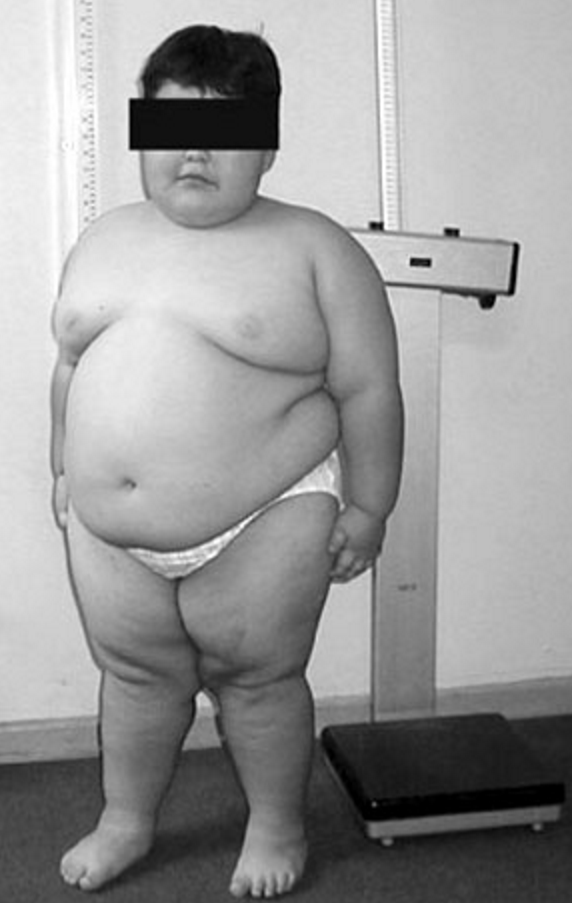Prader-Willi Syndrome
Watchlist
Retrieved
2022-04-26
Source
Trials
—
Genes
MAGEL2,
SNRPN,
NDN,
MKRN3,
NPAP1,
IPW,
PWAR1,
SNORD116-1,
MKRN3-AS1,
PWRN1,
SNORD115-1,
MRAP2,
HERC2,
HTR2C,
CEP63,
CENPJ,
SOS1,
PTPN11,
RIT1,
KRAS,
RAF1,
LZTR1,
ATR,
GH1,
UBE3A,
GABRB3,
SNORD116@,
UROD,
SNURF,
LEP
MAGEL2,
SNRPN,
NDN,
MKRN3,
NPAP1,
IPW,
PWAR1,
SNORD116-1,
MKRN3-AS1,
PWRN1,
SNORD115-1,
MRAP2,
HERC2,
HTR2C,
CEP63,
CENPJ,
SOS1,
PTPN11,
RIT1,
KRAS,
RAF1,
LZTR1,
ATR,
GH1,
UBE3A,
GABRB3,
SNORD116@,
UROD,
SNURF,
LEP,
SNORD14D,
SNORD14B,
SNORD35B,
SNORD14E,
SNORD14C,
GHRL,
SNORD15A,
IGF1,
HCRT,
GHR,
SLC52A2,
OCA2,
F2R,
NR1I2,
ADIPOQ,
PCSK1,
ATP10A,
POMC,
SETDB1,
IL6,
GHRH,
SNHG14,
MAGED1,
PWAR5,
DMD,
BEST1,
ZNF274,
FMR1,
GNAQ,
GLP1R,
EHMT1,
STOML3,
HSPG2,
STS,
RASA1,
TNFSF11,
CRP,
SLC6A4,
LEPR,
MARK2,
TNFRSF11B,
EHMT2,
METAP2,
NHLH2,
GHSR,
GABRA5,
SOST,
SIM1,
PIK3CA,
DKK1,
PROCR,
PADI4,
EID1,
RNF13,
CIT,
ABCB6,
GREM1,
CYFIP1,
ACADS,
ADIPOR1,
RCBTB1,
ZGLP1,
MIR23A,
MIR122,
GOLGA8EP,
RBMY1D,
ENHO,
PWARSN,
RBMY2DP,
GOLGA6A,
WHAMMP3,
SNORD109B,
SNORD109A,
NIPA1,
TUBGCP5,
LMLN,
TMPRSS13,
NIPA2,
DHDDS,
POM121,
ADIPOR2,
ANKRD36B,
CHPT1,
PRDM9,
RETN,
NSMCE3,
ANGPTL8,
ZNF654,
DHX40,
SMN2,
PREPL,
MSMB,
MECP2,
STMN1,
HTR2B,
HTC2,
NR4A1,
HDC,
GCG,
GAPDH,
GABRG3,
FRAXA,
FMO2,
EPHB1,
EFNB2,
DIO3,
DAZ1,
DAG1,
CNR1,
CD36,
BTF3P11,
BRAF,
BGLAP,
BDNF,
BCR,
AVP,
ARSD,
ARSA,
AR,
APOC3,
ALCAM,
MEN1,
MST1,
DLK1,
CYTB,
SCG2,
VEGFA,
TYR,
TWIST1,
TSPY1,
TNF,
THAS,
STATH,
STAR,
AGRP,
SMN1,
SLC5A2,
CCL5,
SAG,
RBMY1A1,
PYY,
PRNP,
PRL,
PRKCA,
PTPA,
PML,
PIK3CG,
PIK3CD,
PIK3CB,
PGC,
PDPK1,
NPY2R,
NPY,
HNRNPM,
FMR1-IT1
Drugs
Beloranib,
Carbetocin,
Diazoxide choline,
Leuprolide acetate
(
LUPRON INJECTION
),
Oxytocin,
Setmelanotide,
Somatropin
(
GENOTONORM,
GENOTROPIN,
OMNITROPE,
NORDITROPIN,
NORDITROPINE,
MAXOMAT,
SAIZEN,
SEROSTIM,
UMATROPE,
VALTROPIN,
ZOMACTON
),
Synthetic cyclic 8 amino acid analogue of human unacylated ghrelin
Registered!

Prader-Willi syndrome (PWS) is a genetic condition that affects many parts of the body. Infants with PWS have severe hypotonia (low muscle tone), feeding difficulties, and slow growth. In later infancy or early childhood, affected children typically begin to eat excessively and become obese. Other signs and symptoms often include short stature, hypogonadism, developmental delays, cognitive impairment, and distinctive behavioral characteristics such as temper tantrums, stubbornness, and obsessive-compulsive tendencies. PWS is caused by missing or non-working genes on chromosome 15. Most cases are not inherited and occur randomly. Rarely, a genetic change responsible for PWS can be inherited. Management of PWS generally depends on the affected person's age and symptoms.